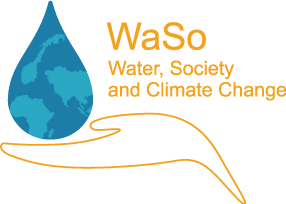About the Project
Need for Integrated Water Resources Management
Bangladesh, Cambodia, Ethiopia, Kenya, South Sudan, Sri Lanka and Uganda are seven countries that are heavily dependent on sound water management. They are also among the countries most severely affected by climate change.
While these countries have variable populations and population densities, they share water-related challenges, which are also related to population increase, urbanisation and industrialisation. While acknowledging the need for integrated water resources management, water supply and sanitation, and adaptation to climate change as key challenges to the decades and centuries to come, all three countries are in great need of water specialists in all sectors.
The role of water specialists
The role of water specialists in the decision-making hierarchy is relatively low. This is partly a result of a lack of earmarked educational programmes in the individual countries. Many of the current higher postgraduate studies related to water and sanitation are carried out in industrialised countries through a range of bilateral and multi-lateral programmes. The capacity of these programmes is insufficient to cope with the huge and growing need, and the programmes themselves can also have the negative impact of contributing to a brain drain.
There is therefore a strong need to build institutional capacity within the Asian and African countries to undertake policy and livelihoods relevant research on water, society and climate change adaptation from a cross-disciplinary and gender sensitive research perspective.
The majority of university capacity-building programmes are based on traditional North-South initiatives with heavy individual capacity-strengthening components. Many recipient universities find it unsustainable, even disturbing, for example, when the best talents disappear (“brain drain” phenomena).
Different approach
WaSo takes a different approach by focusing on South-South partnerships and using individual capacity-building as an instrument to build organisational and institutional capacities, rather than waiting for a more uncertain institutional strengthening through returning professionals that then need to be retained within the universities. In the case of WaSo, the aim is for the WaSo partners in the South to strengthen their graduate and PG studies within their own universities in order to build a sustainable and attractive educational and research environment.
Holistic approach
The project seeks to create links across different disciplines, from meteorology to humanities and social science, in order to take a holistic approach to resource management, climate change adaptation and mitigation research with special reference to water and society. Capacity will be built at participating institutions so that staff are better equipped to supervise master and PhD students at the same time as undertaking quality independent research.
Such capacity cannot be built at every institution in the region, but we have selected a few leading universities with strong competence within traditional water engineering fields who are striving to build up research capacities in emerging disciplines. We have also included a few young, less strong but ambitious universities with urgent needs in traditional water resources management and engineering, as well as emerging issues.
